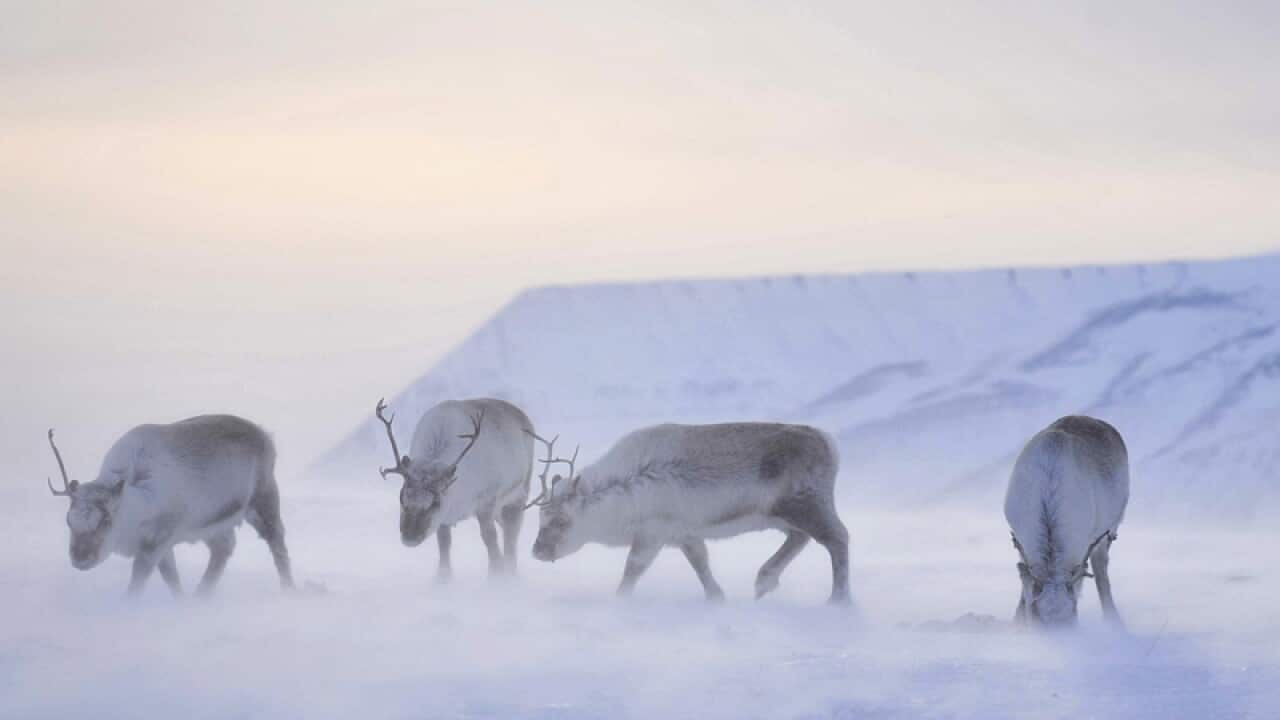Reindeer are shrinking on an Arctic island near the North Pole in a side-effect of climate change that has curbed winter food for the animals.
The average weight of adult reindeer on Svalbard, a chain of islands north of Norway, has fallen to 48 kg from 55 kg in the 1990s as part of sweeping changes to Arctic life as temperatures rise, experts say.
"Warmer summers are great for reindeer but winters are getting increasingly tough," Professor Steve Albon, an ecologist at the James Hutton Institute in Scotland who led the study with Norwegian researchers, said.
Less chilly winters mean that once-reliable snows fall more often as rain that can freeze into a sheet of ice, making it harder for the herbivores to reach plant food. Some reindeer starve and females often give birth to stunted young.
In summer, however, plants flourish in a food bonanza that ensures healthy females more likely to conceive in autumn - a pregnancy lasts about seven months. The wild herd studied had expanded to about 1,400 animals from 800 since the 1990s.
"So far we have more but smaller reindeer," Albon said of reindeer on Svalbard, about 1,300 km from the North Pole. The rising population also means more competition for scarce food in winter.
Arctic temperatures are rising faster than the world average amid a build-up of greenhouse gases in the atmosphere.

